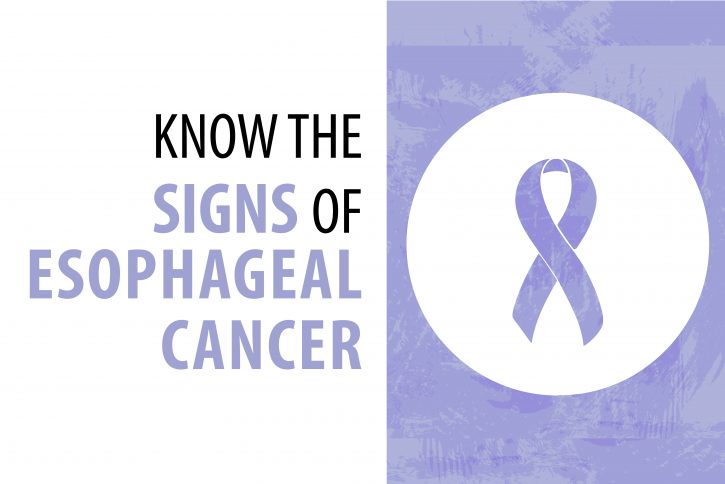
Article originally published April 14, 2021.
Most esophageal cancer is not found until it begins to cause symptoms, which can lead to more difficult treatment due the advanced stage of the cancer. Esophageal cancer can be detected unexpectedly when conducting tests for other issues or conditions. Getting to know the warning signs of esophageal cancer is an important part of early detection.
Symptoms of esophageal cancer:
- Difficulty swallowing
- Chest pain
- Unintended weight loss
- Hoarseness or sore throat that does not go away
- Chronic cough
- Nausea or vomiting
- Bleeding in the esophagus, which may result in black stool
While these symptoms can often be attributed to conditions other than esophageal cancer, it is important that you speak to your healthcare provider about any new or concerning symptoms.
Difficulty Swallowing (Dysphagia)
Having trouble swallowing (dysphagia) is the common symptom of esophageal cancer. Dysphagia can feel like food is stuck in the throat or chest and may cause the person to feel they are choking. This sensation may start off mild and get worse over time as the cancer grows larger.
Some people may try to change their diet – taking smaller bites, eating softer foods, avoiding foods that get stuck – to avoid the issue, but the trouble swallowing will only get worse if the condition is a symptom of esophageal cancer.
While dysphagia can be the result of conditions other than esophageal cancer, like gastroesophageal reflux disease (GERD), it is important to speak with your healthcare provider if you are experiencing difficulty swallowing.
For more information about esophageal cancer, talk to your healthcare provider or call the Fairfield Medical Heartburn Center at 740-689-6486.
Source: American Cancer Society